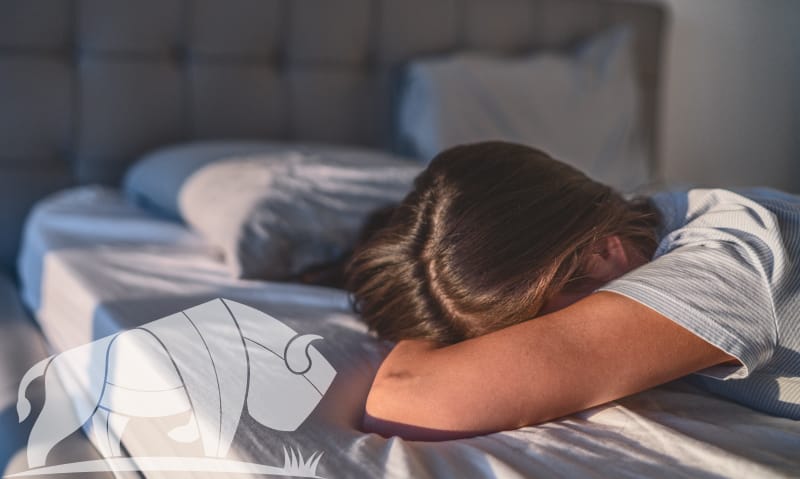Causes, Symptoms, and Solutions for Obstructive Sleep Apnea

Your daytime fatigue might be a symptom of sleep apnea.
Tired throughout the day and not sure why? You could be one of the millions of Americans who have sleep apnea without realizing it. This condition stops breathing during sleep, causing you to jolt awake suddenly. Not only does it disrupt your sleep, but it also contributes to various health issues.
Fortunately, there are effective sleep apnea treatment options available to help.
The Symptoms of Sleep Apnea
Sleep apnea causes a range of symptoms, many of which can also be caused by other conditions. This can make diagnosis difficult, but it’s worth reaching out to a sleep physician if you’re dealing with several of these symptoms.
Many people find out about sleep apnea while looking for snoring remedies. Snoring is one of the most common symptoms of sleep apnea, although it doesn’t necessarily mean that you have the condition. If you’re wondering how to stop snoring, then finding out whether you have sleep apnea or not is a good first step.
Another major symptom is being tired during the day. Because your sleep is being disrupted regularly throughout the night, you aren’t getting the rest you need. Feeling fatigued and irritable throughout the day can impact your everyday life.
You can also find yourself with a dry mouth or sore throat when you wake up. This is a serious dental concern as well, as dry mouth allows bacteria to grow more rapidly and cause both tooth decay and gum disease. Still another sleep apnea symptom to watch for is morning headaches.
You can use this self-assessment form to catalog your symptoms and determine whether reaching out to a physician is the next step to take.
What Causes Sleep Apnea?
There are two different types of sleep apnea, each with different causes. The most common type is obstructive sleep apnea. When the muscles in your throat relax during sleep, they allow the airway to close and block your breathing. A wide range of underlying issues might cause these muscles to relax.
Central sleep apnea is less common. This condition is related to the brain signals that regulate breathing. It’s a serious issue caused by instability in the respiratory control center and can require alternative treatments to those available for obstructive sleep apnea.
Who is most likely to develop sleep apnea?
Sleep apnea affects different demographics at different rates. It’s more than twice as common in men as it is in women. While it can affect people of all ages, it’s also more common in those over the age of fifty.
Risk Factors for Sleep Apnea
There are a number of risk factors that can increase your chance of developing sleep apnea. They include both underlying medical conditions and lifestyle choices.
Individuals with thicker necks or narrower airways are more likely to develop sleep apnea as it is easier for the relaxed muscles to block the airway. Many of these factors are hereditary, so a family history of sleep apnea can mean you have an increased risk.
Obesity is another significant risk factor. Fat deposits around the airway make it much easier for the airway to close. Other factors like tonsil or adenoid swelling can also cause a similar effect.
People who smoke are much more likely to develop sleep apnea due to increased inflammation and fluid retention in the airway. Sleep apnea can also be caused by the use of alcohol or sedatives due to the muscle-relaxing effects they have.
Some specific conditions are also associated with an increased risk of sleep apnea, including type 2 diabetes, high blood pressure, and congestive heart failure.
Sleep Apnea Diagnosis and Treatment
Anyone looking for sleep apnea and snoring remedies will have access to a range of different treatment options. The first step is to reach out to a sleep physician for an evaluation. They can determine whether you have sleep apnea or not and the severity of your case.
From there, several common treatment options are available. Serious cases may require the use of a continuous positive airway pressure (CPAP) machine that pressurizes the airway to prevent it from closing during sleep. In some specific cases, surgery may be an option as well.
For mild to moderate cases of sleep apnea, an oral appliance from your general dentist could be the best option. These devices will hold your jaw in a certain position as you sleep, preventing the throat muscles from relaxing and closing your airway.
Your Dentist Office in Buffalo, MN
If you’re concerned about sleep apnea, Dr. Spier can help determine whether an oral appliance could be the right treatment option for you. Contact Dental Care Associates of Buffalo today to get started.
